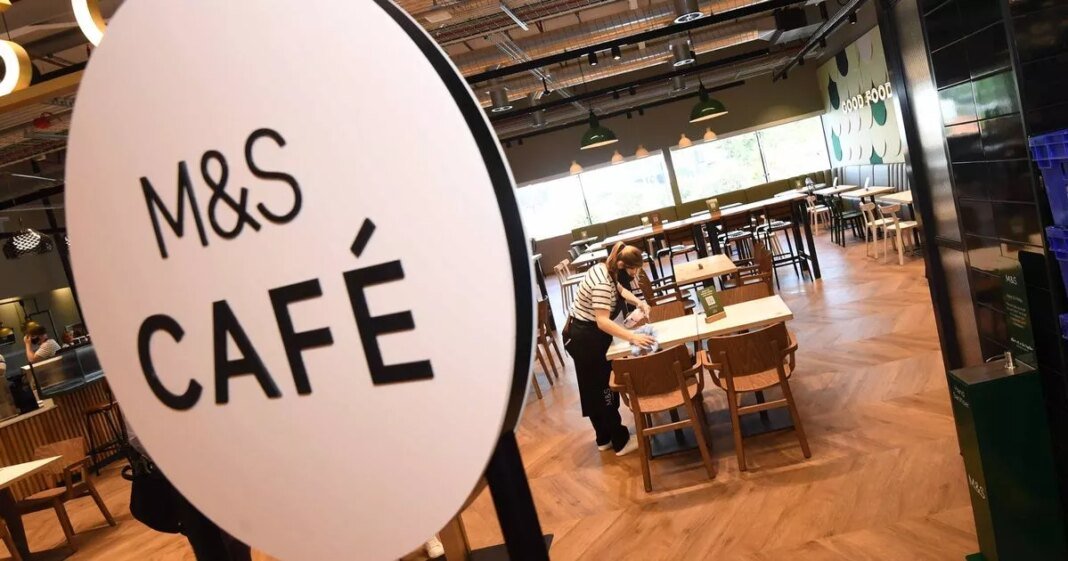Marks & Spencer has announced the closure of 11 cafes in its smaller food shops as part of an ongoing restructuring of its store network. The company stated that this move is aimed at making room for more popular products and assured that no jobs will be lost, with affected staff being redeployed within the stores. The closures will impact less than 4% of the total 316 food shops operated by the retailer.
A spokesperson for M&S explained that the decision to close the cafes is part of a strategy to modernize the food business and expand the range of M&S Food offerings. As part of this transformation, the company is planning to open new coffee shops that will serve high-quality food and fairtrade coffee, including at the recently opened Bristol Cabot Circus store.
In addition to the cafe closures, M&S is investing £300 million in a store renovation and expansion program to increase the number of M&S food halls. This initiative involves converting several full-line stores into food-focused outlets and upgrading existing food-only stores to better serve customers.
The company aims to grow its food store portfolio to approximately 420 stores by the end of 2028. This strategic expansion comes as M&S continues its financial recovery following a significant cyberattack earlier in the year, which resulted in a temporary halt to online orders for six weeks and an estimated cost of £300 million.
Earlier in the year, Marks & Spencer faced a crisis when hackers stole personal data of potentially millions of customers and demanded ransom. Co-op also experienced a cyberattack but managed to avert major disruptions by shutting down its IT systems. The incident highlighted the vulnerability of retailers to ransomware attacks, with the retail sector witnessing a surge in such threats.
Graeme Stewart, head of public sector at security company Check Point, reported a notable increase in ransomware attacks targeting UK retailers, with the sector now ranking fifth among the most targeted industries. The top four sectors facing similar attacks are primarily in the public domain, including higher education, the NHS, local government, and the Ministry of Defence.

